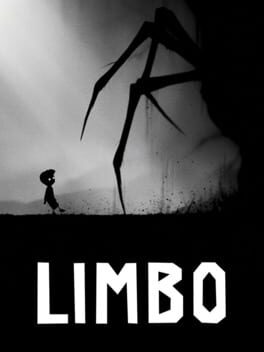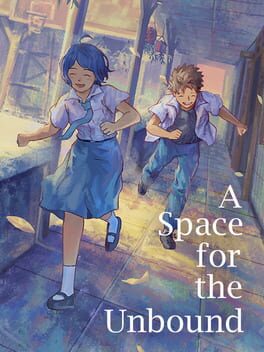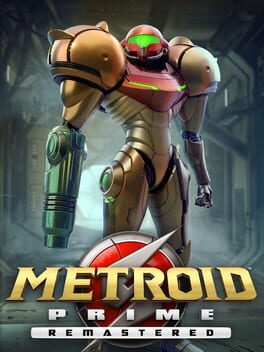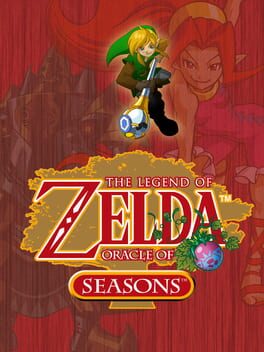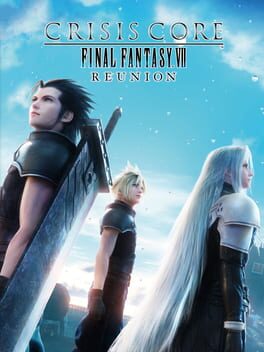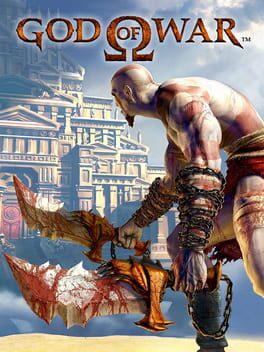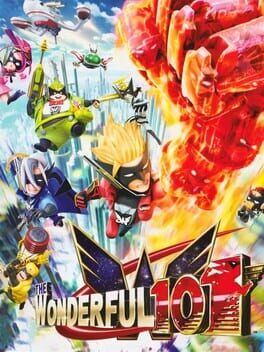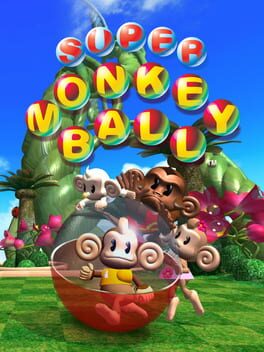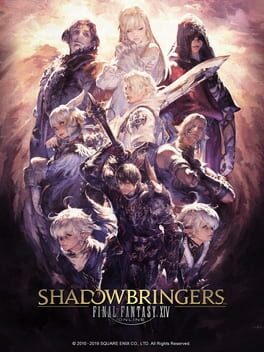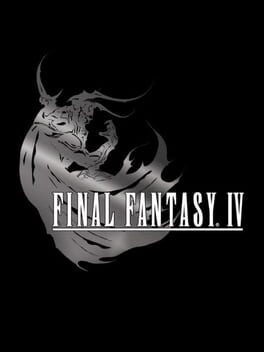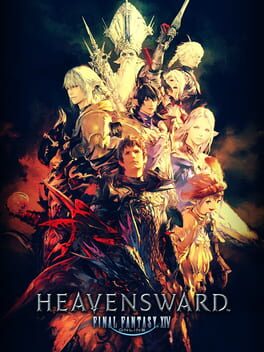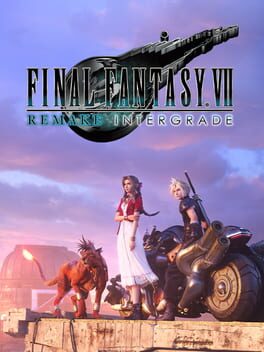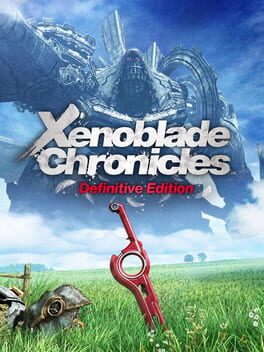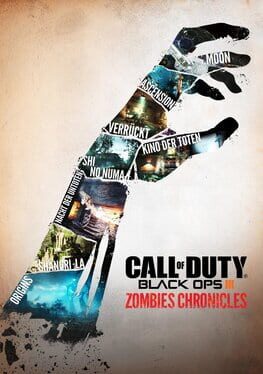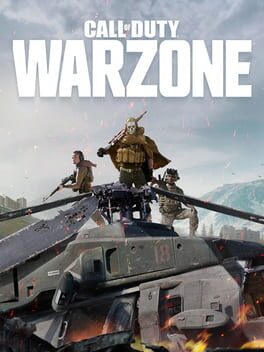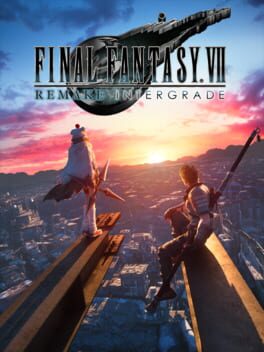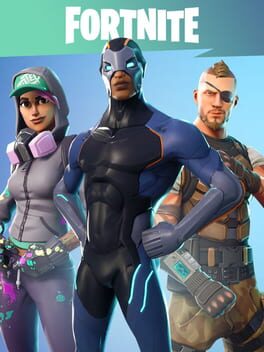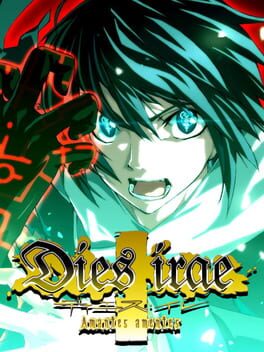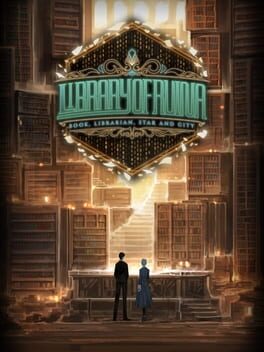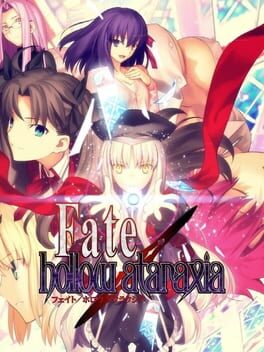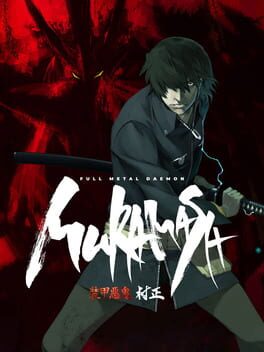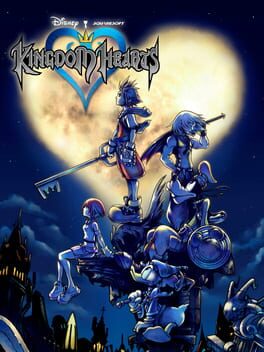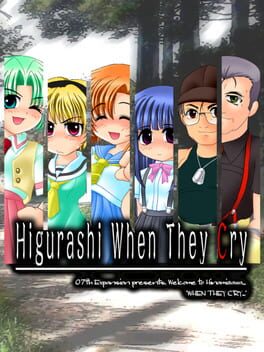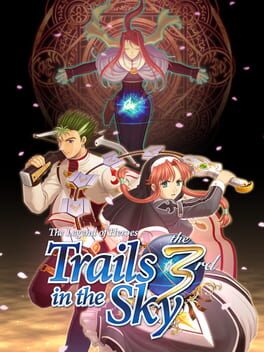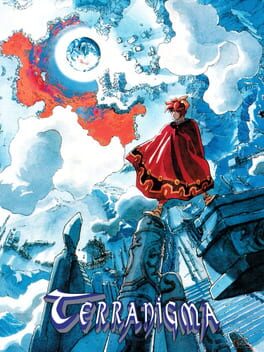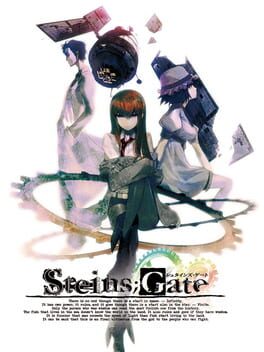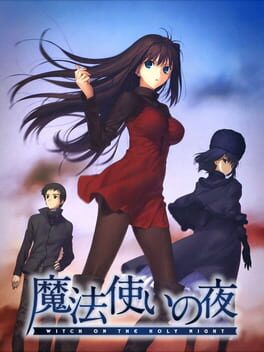Miguel
BACKER
55 reviews liked by Miguel
Final Fantasy XVI
2023
For the longest time, I’ve always delayed this review for a specific reason. When I first finished FFXVI, I wrote down a 6 paged long review for FFXVI and while I am proud of the passion I poured into it, it just…lacked “something”, a main integral part of it was missing. It would only be a few months later that I’d realise the reason why, and it’s because while I did absorb the motivational and inspiring themes about accepting reality for what it is and resisting your predetermined fate to shape the reality you want, I didn’t apply that to my life like I thought I did and that faint, vague thought that slept in the deepest crevices of my mind would be the sole saviour of my mind when I was forced to confront a personal, subconscious part of who I am that I kept locked away for my own comfort when I had a painful self realisation about my darker subconscious traits. Trying to verbalise the vehement disgust and sheer sense of discomfort I felt towards myself when I made that self realisation was too much for me at the time, and so, in a way, writing this review at this state in my life about a game that was the catalyst to this realisation I made was like going through the different parts of myself that I hated and denied for the longest.
It was like picking the scattered shards of a broken glass, trying to reconnect them one by one from the past into one integral piece to feel a sense of peace. But the more shards I picked, the more they hurt, and that sensation of wanting to throw it all away and replace the broken shards with fake ones that barely fit just to indulge in self denial was what made me connect with the leading protagonist, Clive Rosfield. What I’d been ignoring my entire life, my own shadow and subconscious reactions, have been what were causing me most of my strife in life, yet I always averted my eyes from the truth when it was staring right into my face and blamed another for it to spare myself the guilt that I always feared would destroy what little was left of me. It set me on a long journey that tested my perseverance, self love, outlooks on life, my relationships, and most importantly myself, causing me to re-evaluate everything that I was, with beach walks by the full moon at night being my only temporary relief in an otherwise overwhelming time.
FFXVI isn’t just a game, it’s about taking responsibility towards others but most importantly yourself, it’s a fiery, blazing yet a gentle and a warm reminder that while choosing to be the victim is easy, becoming the hero of your own story and turning tragedy to triumph is a continuous arduous path that’s full of suffering and fear. FFXVI pushes the generic idea that embracing the truth makes you stronger, but what sets it apart is that it emphasises how accepting the truth is only a part of the equation and isn’t the be all and end all. Accepting the truth is part of it, but applying that truth, etching it onto your heart, and wearing your heart on your sleeves as you’re burning a roadless path ahead without running away is what matters. It doesn’t show that the acceptance of truth is a one time event, it’s an ongoing process that takes as long as our lives do, and it does that with how it characterises Clive’s contradictions because when he accepted the truth, trying to apply it on his journey was just as arduous as ever and that’s what truly touched me, because there is no escape nor a solution to it, it’s an endless treadmill with moments of bliss sprinkled every now and then. Whether it’s Clive’s own struggles to live up to his father’s ideals and his fears pertaining them, Jill’s inability to shake off her self deprecating views about herself from her experiences with abuse, Joshua’s need to prove his own self because of his inferiority complex, & Dion’s need to obsessively pay everyone he unintentionally hurt back when he doesn’t need to, I felt like I was seen and validated by each and everyone of them. It’s when a piece of art can speak to you so spiritually and forms such an intimate connection with you that its characters feel like real people and integral parts of who you are, that it stops being just a piece of art and something deeper than that. It becomes a safe haven and that’s the most accurate way I can describe FFXVI.
Though I did the most I could to embrace the shadow and subconscious traits from within me, to forgive and accept that part of me instead of rejecting it by doing inner child work, patching up my hostile relationship with my parents, reconnecting with my siblings and friends, going out of my comfort zone to do things I always wanted to do, and internalising a new way to look at everything as I knew, even as I’m writing this, I can feel those dark habits pulling me back and my fear of the truth from within me breaking me apart, but it’s why I’m able to connect with Clive so much, who tries to be an unstoppable force while being barely held together by thin rope that could break at any moment & believing in the truth of his being. The truth is a feeble concept, one formed and changed by the narrow mind’s singular perspective in an attempt at self preservation, but that’s what helped me explore a deeper meaning to my life because the truth isn’t what’s before you, it’s what you make of it and work towards realising that. We can’t choose who we are, but we can choose who we become on the morrow and strive towards that self. It’s less about changing who we are as much as it’s about exploring who we can become and getting comfortable with that. In this piece in which I impart an integral, personal chapter of my life, I leave a mark that maybe someone can learn from or be inspired by, the same way this piece of art inspired a transformative stage in my life. Years from now, I likely won’t be able to recall the exact feelings I felt writing this piece, but I know that they will impact me forever after, as little as they are, just like how the few blissful moments I spent walking by the beach and gazing at its endless horizons with the full moon’s light illuminating the ocean did.
Starfield
2023
The good: Story, cast, gunplay, worlds, space combat, immense sense of freedom
The bad: Space feels like a glorified level select screen, no flying from planet to planet, no spacewalks, no taking off from planet to space, npcs are dumb
Great game overall can’t wait for the dlc next year and future titles in this franchise. I expect many of my issues to be inevitably fixed in a sequel. Would recommend to anybody who is subscribed to gamepass!
The bad: Space feels like a glorified level select screen, no flying from planet to planet, no spacewalks, no taking off from planet to space, npcs are dumb
Great game overall can’t wait for the dlc next year and future titles in this franchise. I expect many of my issues to be inevitably fixed in a sequel. Would recommend to anybody who is subscribed to gamepass!
Limbo
2010
Minimalistic and abstract in style, open to interpretation narrative, beautifully seaming together film noir aesthetic, the German Expressionism esque art direction and style with sombre use of sound, Limbo throws the player into a unique atmosphere. The gameplay controls are refined and smooth and are complemented by the physics of the mechanics which in combination with the film grain filter lends an ethereal experience.
Final Fantasy XVI
2023
I really wanted to come out of the ending satisfied, being able to find it within myself to fully accept the way FF16 executed its vision and say "despite its flaws it's very well done". But as the dust has settled, I find that while I still feel like its messages are extremely palpable and powerful, I didn't come out of the experience feeling wholly confident that FF16 executed itself to the best of its ability.
It's no secret now that this game is not actually a game of thrones politics heavy Final Fantasy game, but is actually just your typical JRPG romp. Make friends, save world, defy fate, etc etc. It's this first element especially that is essentially the lynchpin of the entire narrative, and it is the center of its focus on every level. From the plot, to the thematics, to the characters, to the game design YoshiP and Maehiro STRESS deeply the communities you've come to be a part of, as well as the power of the found family you’ve come to create. And I think through the sidequests this is done super well, but I don't love how these elements at times can take away from the main scenario experience. From the literal times which the plot halts completely and has you fill time by going around the hideaway, or how everytime you enter a new area you have to learn about its local town and the secret leaders who run them. While I find the former egregious, the latter isn't inherently problematic. I am a 14 fan after all, but the difference between 14 and 16 in this department is the potency of their writing and worldbuilding. I don't mind helping people do random BS in Shadowbringers cause Norvrandt is one of the richest worlds out there and Ishikawa writes with such charm and turn that random NPC's can really have an impact on how you view the world. Maehiro in 16 just really doesn't have the charm in his writing to consistently make his NPC's pop and Valisthea is just not an interesting enough setting to carry these more mundane sections. There is a lot of focus in trying to make some of the more significant NPC’s notable characters and I really appreciate that approach, but there really is only so far you can go with an NPC in terms of character writing.
It really ends up being a double edged sword, where while I do think it ultimately contributes to this holistic vision that can be satisfying (see the conclusions to many of the side quests), it at the same time draws focus away from things that definitely could've really used it like better exploration of the politics within Valisthea. This is something really made apparent by the fact that there’s literally a character who’s entire job is to explain to you the political state of the world on the handful of occasions Clive actually ships out on a mission.
I feel like every day I'd hop on 16 I'd feel different about it, more or less confident with its vision at each step, one day content and another quizzical. Funnily enough this is exactly like how I was with Endwalker, and I probably have it within myself nowadays to admit that Shadowbringers/Endwalker are my de facto top 1 fiction, but the difference here is I just don't think the quality of the writing is ever strong enough to really make my confliction ever bloom into deep appreciation and love.
That being said, I do really enjoy a lot of the game. I've been very critical of it simply because I think there is a lot to say about 16 as an experience, but ultimately there are still a lot of positives to remark on. The boss fights and setpieces are awesome, the cast is way better than I'd ever thought it'd be, Maehiro wrote his first truly great antagonist, the cutscene direction/general visuals are incredible, and I think in general the story has a really great sense of thematic cohesion which makes a lot of the moments land especially hard. This game is good, without a doubt in my mind do I think it's good but before I had first played it I said something to myself, which was I'd be content if it was at least better then Heavensward. And I haven't played Heavensward in so long, so it's hard for me to even make this judgment properly, but it's the fact that I can't be confident about it that gives me pause.
It's no secret now that this game is not actually a game of thrones politics heavy Final Fantasy game, but is actually just your typical JRPG romp. Make friends, save world, defy fate, etc etc. It's this first element especially that is essentially the lynchpin of the entire narrative, and it is the center of its focus on every level. From the plot, to the thematics, to the characters, to the game design YoshiP and Maehiro STRESS deeply the communities you've come to be a part of, as well as the power of the found family you’ve come to create. And I think through the sidequests this is done super well, but I don't love how these elements at times can take away from the main scenario experience. From the literal times which the plot halts completely and has you fill time by going around the hideaway, or how everytime you enter a new area you have to learn about its local town and the secret leaders who run them. While I find the former egregious, the latter isn't inherently problematic. I am a 14 fan after all, but the difference between 14 and 16 in this department is the potency of their writing and worldbuilding. I don't mind helping people do random BS in Shadowbringers cause Norvrandt is one of the richest worlds out there and Ishikawa writes with such charm and turn that random NPC's can really have an impact on how you view the world. Maehiro in 16 just really doesn't have the charm in his writing to consistently make his NPC's pop and Valisthea is just not an interesting enough setting to carry these more mundane sections. There is a lot of focus in trying to make some of the more significant NPC’s notable characters and I really appreciate that approach, but there really is only so far you can go with an NPC in terms of character writing.
It really ends up being a double edged sword, where while I do think it ultimately contributes to this holistic vision that can be satisfying (see the conclusions to many of the side quests), it at the same time draws focus away from things that definitely could've really used it like better exploration of the politics within Valisthea. This is something really made apparent by the fact that there’s literally a character who’s entire job is to explain to you the political state of the world on the handful of occasions Clive actually ships out on a mission.
I feel like every day I'd hop on 16 I'd feel different about it, more or less confident with its vision at each step, one day content and another quizzical. Funnily enough this is exactly like how I was with Endwalker, and I probably have it within myself nowadays to admit that Shadowbringers/Endwalker are my de facto top 1 fiction, but the difference here is I just don't think the quality of the writing is ever strong enough to really make my confliction ever bloom into deep appreciation and love.
That being said, I do really enjoy a lot of the game. I've been very critical of it simply because I think there is a lot to say about 16 as an experience, but ultimately there are still a lot of positives to remark on. The boss fights and setpieces are awesome, the cast is way better than I'd ever thought it'd be, Maehiro wrote his first truly great antagonist, the cutscene direction/general visuals are incredible, and I think in general the story has a really great sense of thematic cohesion which makes a lot of the moments land especially hard. This game is good, without a doubt in my mind do I think it's good but before I had first played it I said something to myself, which was I'd be content if it was at least better then Heavensward. And I haven't played Heavensward in so long, so it's hard for me to even make this judgment properly, but it's the fact that I can't be confident about it that gives me pause.
Constantly challenging, creative, and intuitive in its levels, with a more linear approach to its overworld design that upholds a consistent feeling of satisfaction its predecessors don't quite have. And despite the restrictions you'd imagine this linearity might cause, effective and varied implementations of shortcuts and alternate pathways ironically make Holodrum feel more open and free than any other 2D Zelda world I've experienced.
We Love Katamari
2005
''Embrace your dreams. And whatever happens, protect your honor as SOLDIER''
One of the most interesting premises a story can have is building a main character with heroic ideals & righteous beliefs in an environment that downright rejects, denies & is thoroughly incompatible with said ideals due to its cruel, unforgiving nature & that being Crisis Core's premise & main theme communicated through Zack's character is what makes it so poetically beautiful especially with the symbolism behind the concept of wings in this game & how it ties to its theme of freedom & heroism where Zack is forced to undergo challenges that make him question the crux of his ideals so much so he begins to doubt himself.
Now to focus on the symbolism behind wings for a bit, wings are defined differently by Crisis Core's cast, Genesis and Angeal believe them to symbolize monstrosity, Cissnei believes they're a sign of freedom, & Zack's own personal discovery of what wings mean is his entire character arc. From time and time again, Zack constantly gets betrayed by what he believed in, whether it be Angeal, the cruel reality of what SOLDIER really is about, or the dark side of Shinra & what always brings him back on his feet & keeps him going is his sense of honor & ideals that are shaped by his relationship with the cast. When his sense of honor was breaking apart & he pleaded to Angeal for help, what brought him back to his senses & reminded him to stay loyal to his honor even if the crux of what he was fighting for turned out to be worthless, was Cloud's words & the reason why that moment stood out to me so much, is that when both Zack and Cloud were wavering in their respective games, what brought them back on their feet were their memories & love for the people dear to them. The emphasis on bonds & their importance to who you are as a person in both games was tied perfectly, all while pushing the main idea of Crisis Core, & it's that freedom & honor is something you decide yourself & define on your own terms instead of letting external factors shackle you down. Whatever your environment tells you, protect your beliefs & fight for them for a brighter tomorrow.
"If you want to be a Hero, you need to have dreams... and honor''
If there was a moment that ever strongly expressed the notion I just mentioned, it's Zack's sacrafice & what it meant for him to go against Shinra, the company he dedicated his entire life to serving & dreaming of saving to become like his ideal hero Sephiroth. To fight the physical manifestation of everything that rejects his ideals, to fight the crux of what he previously admired, & to break through the cage & shackles holding his wings back for a tomorrow with no regrets, Zack defined his own personal belief of what wings are & instead of fearing them & viewing them with resentment, he used them as a way to empower himself, pay his price of freedom to become an unspoken hero & entrust his legacy to Cloud.
One of the most interesting premises a story can have is building a main character with heroic ideals & righteous beliefs in an environment that downright rejects, denies & is thoroughly incompatible with said ideals due to its cruel, unforgiving nature & that being Crisis Core's premise & main theme communicated through Zack's character is what makes it so poetically beautiful especially with the symbolism behind the concept of wings in this game & how it ties to its theme of freedom & heroism where Zack is forced to undergo challenges that make him question the crux of his ideals so much so he begins to doubt himself.
Now to focus on the symbolism behind wings for a bit, wings are defined differently by Crisis Core's cast, Genesis and Angeal believe them to symbolize monstrosity, Cissnei believes they're a sign of freedom, & Zack's own personal discovery of what wings mean is his entire character arc. From time and time again, Zack constantly gets betrayed by what he believed in, whether it be Angeal, the cruel reality of what SOLDIER really is about, or the dark side of Shinra & what always brings him back on his feet & keeps him going is his sense of honor & ideals that are shaped by his relationship with the cast. When his sense of honor was breaking apart & he pleaded to Angeal for help, what brought him back to his senses & reminded him to stay loyal to his honor even if the crux of what he was fighting for turned out to be worthless, was Cloud's words & the reason why that moment stood out to me so much, is that when both Zack and Cloud were wavering in their respective games, what brought them back on their feet were their memories & love for the people dear to them. The emphasis on bonds & their importance to who you are as a person in both games was tied perfectly, all while pushing the main idea of Crisis Core, & it's that freedom & honor is something you decide yourself & define on your own terms instead of letting external factors shackle you down. Whatever your environment tells you, protect your beliefs & fight for them for a brighter tomorrow.
"If you want to be a Hero, you need to have dreams... and honor''
If there was a moment that ever strongly expressed the notion I just mentioned, it's Zack's sacrafice & what it meant for him to go against Shinra, the company he dedicated his entire life to serving & dreaming of saving to become like his ideal hero Sephiroth. To fight the physical manifestation of everything that rejects his ideals, to fight the crux of what he previously admired, & to break through the cage & shackles holding his wings back for a tomorrow with no regrets, Zack defined his own personal belief of what wings are & instead of fearing them & viewing them with resentment, he used them as a way to empower himself, pay his price of freedom to become an unspoken hero & entrust his legacy to Cloud.
God of War
2005
10 lists liked by Miguel
by giIsborough |
17 Games
by Talketsu |
10 Games
by AUG |
8 Games
by Alex |
10 Games
by Aleczandxr |
53 Games
by NiloMilo |
51 Games
by FrozenRoy |
72 Games
by thiefbeef |
50 Games
by NiloMilo |
45 Games


